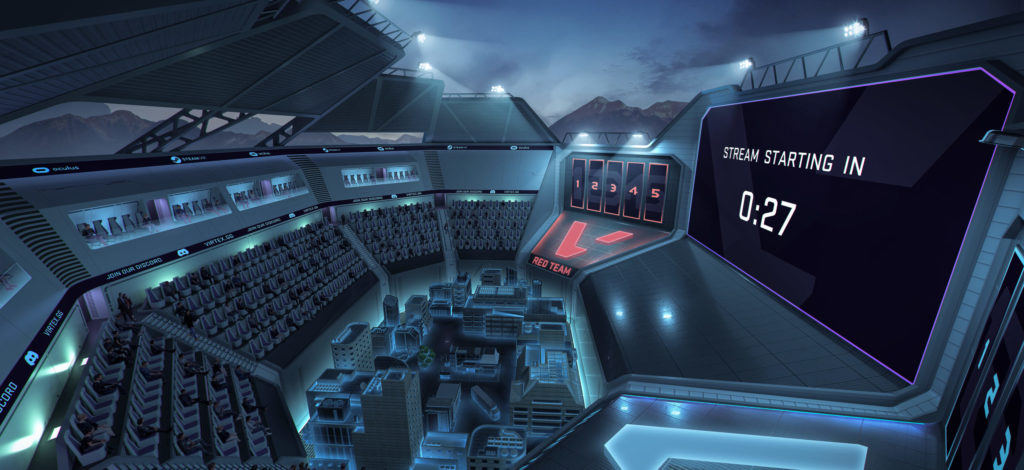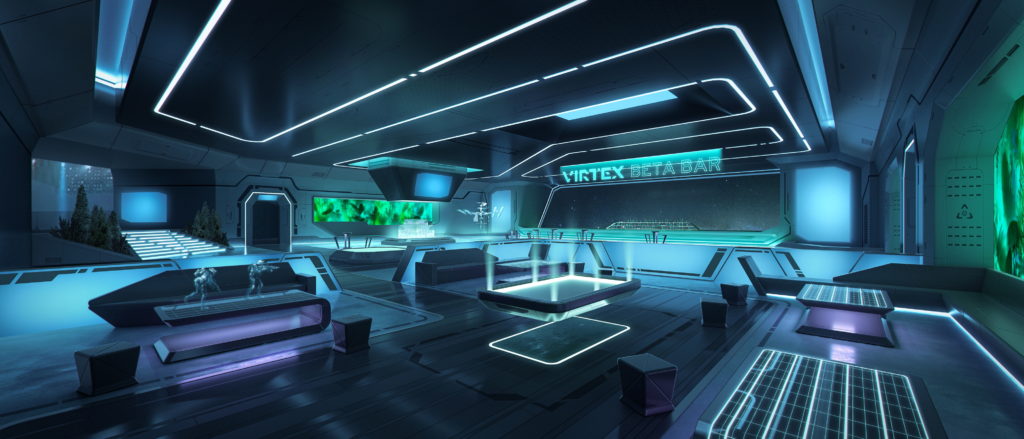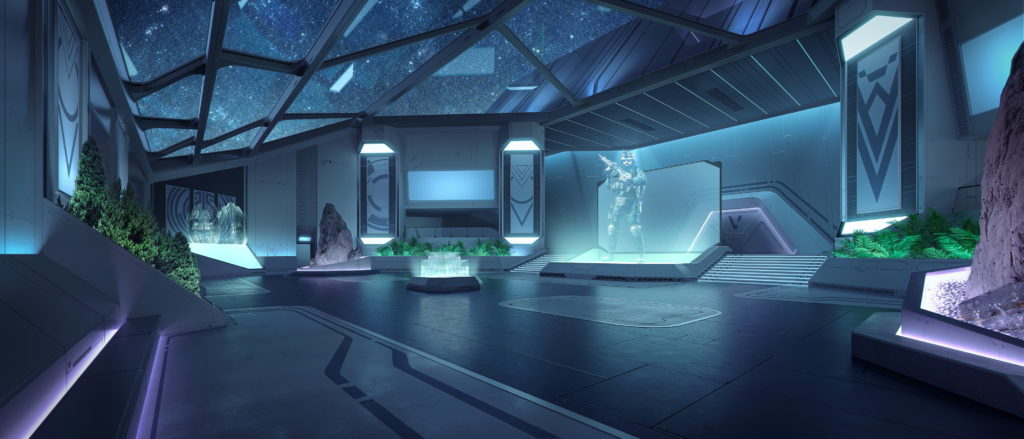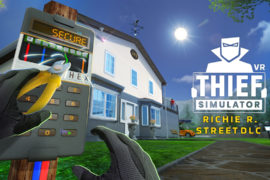Virtex wants to revolutionize the way we view live esports by replicating the IRL stadium experience in VR.
The esports industry has come a long way since its humble beginnings back in 1972 when a handful of students from Standford University took part in the first reported video game tournament featuring the 1962 space combat game Spacewar!. However, what began as niche competition between college students has since developed into a multi-billion dollar industry. According to a recent market report by Newzoo, the esports industry is expected to gross $1.084 billion in 2021; that’s more than a 14% increase from last year.
With that kind of projected growth, it comes as no surprise that more companies than ever are looking to position themselves within the rapidly-growing industry. This includes Virtex Entertainment, a company based out of London, UK that wants to revolutionize the way we enjoy live esports entertainment using its custom 3D arenas powered by VR technology.
Virtex Stadium is described by the company as a social VR experience that allows you to meet up with friends in VR and enjoy live esports from the bleachers of a virtual stadium alongside hundreds of screaming fans. Up to 50 visitors can shoot the breeze in the lobby before heading to the stadium, which holds up to 200 attendees per server.
According to the company, Virtuix Stadium optimizes the remote esports viewing experience by working directly with publishers and Esports organizers to broadcast 3D gameplay live in VR. If you’re in the stadium, this gameplay will appear in immersive 3D at the center of the field, much like a standard baseball stadium; if you’re in the lobby, you can watch the game as a free-roaming hologram. You can even teleport from your seat directly into the match and surround yourself with the action.
“Having been a part of Esports live events as competitors, organizers, and fans, we cherish the unique atmosphere that comes with a live show. Our team chooses the stadium over the stream every time,” said Tim Mcguinness, CEO and Founder of Virtex in an official release. “We are incredibly excited about the potential of virtual events as this new format allows us to put users so close, or sometimes literally into, the experiences, games, and events they know and love. When it comes to live events we’re not limited by the real world anymore and with Virtex Stadium we want to show that.”
The company states that each arena can be customized to match its respective game, offering publishers and organizers a plethora of unique branding opportunities as well as control. Much like an actual stadium, Virtex Stadium promises a robust production console featuring the same video outputs and industry standards you’d find in a real control room. This will supposedly allow production teams to more easily capture key gameplay shots in real-time and mix them with fan reactions, stadium effects, and other audio/video elements to create more entertaining shows.
“I have been building virtual worlds for over 20 years, with Linden Lab when Second Life was just getting started, at CCP on EVE Online and more recently with Oculus and Facebook on their social VR experiences” added Jim Purbrick, former Engineering Lead on social VR applications at Oculus and Technical Director at Linden Lab, currently working as an advisor for Virtex.
“I am very excited about Virtex Stadium, because watching Esports is a perfect fit for social VR. The team has put a lot of effort into realizing that potential for Esports communities: building a viewing experience which would not be possible outside VR. Virtex Stadium hints at a future where VR lets us do and see things in ways which were not possible in real life.”
No word yet on what companies have signed on to the platform, though Virtex promises more information when the Open Beta launches later this year. According to the website, the platform will be available in VR on Oculus and SteamVR headsets and in 2D via YouTube and Twitch.
With numerous tools designed to increase monetization through in-app purchases and advertising, Virtex Stadium could prove attractive to numerous organizations looking to take their respective brands to the next level.
For more information visit here.
Feature Image Credit: Virtex Entertainment
The post Could VR Stadiums Be The Future Of Live Esports? appeared first on VRScout.






